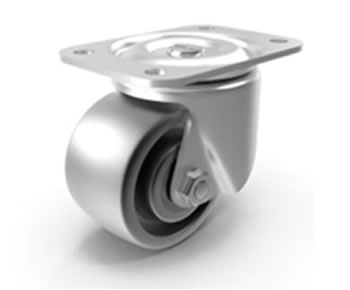Workbench Casters
Casters are essential components for workbenches, as they provide mobility and flexibility in various work environments. Workbench casters allow you to move heavy workbenches effortlessly, making them versatile and adaptable for different tasks. When selecting casters for your workbench, consider several important factors to ensure they meet your specific needs.
Types of Casters for Workbenches
There are different types of casters suitable for workbenches, depending on your work environment and requirements:
- Swivel Casters: Swivel casters provide 360-degree rotation, allowing for easy maneuvering in tight spaces. They are ideal for workbenches that require frequent direction changes.
- Locking Casters: Locking casters have a mechanism that can immobilize the workbench when needed. This feature is useful when stability and safety are essential during work.
- Heavy-Duty Casters: For workbenches that support heavy loads or industrial applications, heavy-duty casters with robust construction and load-bearing capacity are recommended.
- Brake Casters: Brake casters have a brake mechanism that can be engaged to prevent the workbench from moving. They provide both mobility and stability when required.
Factors to Consider When Choosing Workbench Casters
When selecting casters for your workbench, consider the following factors:
- Load Capacity: Determine the weight capacity your workbench requires. Ensure that the selected casters can support the combined weight of the workbench and any heavy equipment or materials.
- Wheel Material: The material of the caster wheels is critical. Common options include rubber, polyurethane, and steel. Choose a material that suits your work environment and provides adequate floor protection.
- Wheel Size: The size of the caster wheels affects stability and mobility. Larger wheels can roll over uneven surfaces more easily, while smaller wheels are better for maneuverability.
- Mounting Style: Consider whether your workbench requires stem-mounted or plate-mounted casters, depending on the design and structure of your workbench.
- Swivel Capability: Determine if your workbench needs swivel casters for easy movement in all directions. Swivel casters enhance flexibility but may have a slightly reduced load capacity compared to rigid casters.
Benefits of Quality Workbench Casters
Investing in high-quality casters for your workbench offers several advantages:
- Improved Mobility: Quality casters make it easy to reposition your workbench, allowing you to adapt your workspace to various tasks.
- Enhanced Productivity: The ability to move your workbench quickly and efficiently can boost productivity, as you can access tools and materials more conveniently.
- Safety: Locking or brake casters provide stability and safety when working on projects that require a stationary workbench.
- Durability: High-quality casters are built to withstand the demands of heavy-duty workbenches and provide long-lasting performance.
Installation and Maintenance
Properly install your workbench casters following the manufacturer's instructions to ensure stability and safety. Regularly inspect and maintain the casters, including cleaning and lubricating them, to maximize their lifespan and performance.
Choosing the right casters for your workbench can greatly enhance the functionality and versatility of your workspace. Consider your specific needs and the factors mentioned above to make an informed decision when selecting workbench casters.










